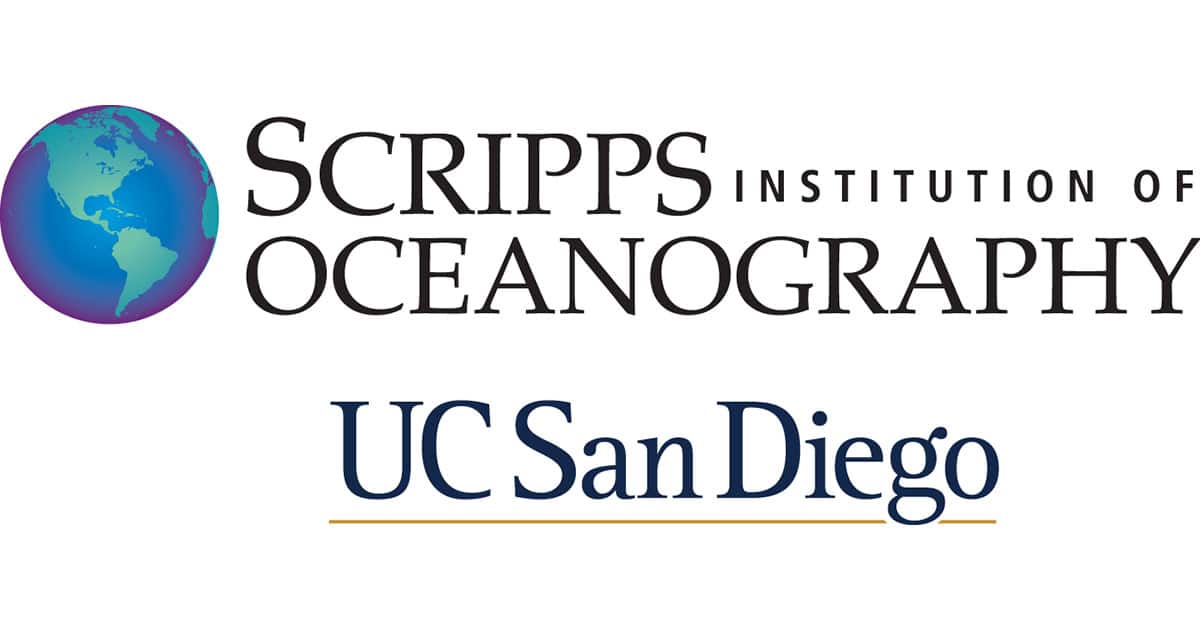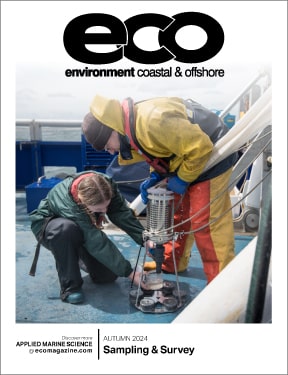As Chemical Lab Manager of CalCOFI physical lab spaces and Lead Chemist, maintain and oversee all aspects of the analytical and chemistry laboratory. At sea, perform as watch leader and analyst; i.e. oversee over-the-side deployment of sampling equipment, operation of scientific data collection and analytical equipment, radioactive primary productivity measurements and assessment of data quality at sea.
Perform high precision quantitative analyses of seawater samples including salinity, dissolved oxygen, chlorophyll, and dissolved nutrients. Ashore, process and maintain quality control of data through all stages of acquisition, processing, and publication. Prepare and oversee preparation of analytical equipment and chemicals to go to sea. Coordinate chemical, chemical waste, radioactive material and radioactive waste storage and transport. Process CalCOFI biological and chemical data using CalCOFI processing software including but not limited to making plots, tables and examining data for suspicious points while implementing other quality control procedures necessary in preparing final published data reports. Keeps abreast of new technologies for physical and chemical analysis of sea water and develop new methodologies for use on research ships. Manage data on networked computers, publish and maintain data, metadata, and methods online, and assist with website support. Requirements include a demonstrated expertise in marine chemistry and multiple years of experience operating a nutrient analyzer.
QUALIFICATIONS
- Master’s degree in oceanography and a bachelor’s degree in chemistry. Minimum of 10 years demonstrated experience at sea and knowledge of how to operate sea-going data collection and analytical equipment including: nutrient analyzer, salinometer, oxygen titration rig, CTD-Rosette, depth recorder, underway data logging systems, plankton nets, fluorometers, handle radioisotopes, operate computer software.
- Demonstrated advanced knowledge of instruments’ operation principles and analytical procedures sufficient to troubleshoot the problem and make minor repairs.
- Theoretical and practical knowledge of oceanography, chemistry, statistics or engineering principles needed for data collection, analysis and quality control.
- Extensive experience in performing a wide variety of chemical analyses, including nutrient chemistry, using standard methods. Demonstrated experience to conduct quantitative analyses using a nutrient analyzer at sea without supervision. Demonstrated experience reading, interpreting and applying protocols in conducting research. Proven ability to follow step-wise experimental protocols in addition to developing modifications as needed.
- Demonstrated expertise in marine chemistry. Detailed knowledge of chemistry needed to oversee safe and efficient use of shore-based laboratories, to train others in procedures, and to develop and improve analytical procedures by keeping up on advances in the field affecting data quality and accuracy of analytical procedures. Demonstrated understanding of nutrient chemistry data, both raw auto-analyzer data and conversion into processed CalCOFI data stream.
- Proven experience in the safe operation of general laboratory and analytical equipment without supervision. Demonstrated experience with shipboard work and routine aboard research vessels.
- Proficiency with various computer operating systems, particularly Microsoft Windows, and software, including Matlab and Microsoft Office (Excel, Word, and Access) or equivalent programs.
- Demonstrated ability to perform maintenance and troubleshooting on computers, oceanographic sensors, and laboratory analytical equipment. Experience with basic software and electronics troubleshooting techniques. Demonstrated resourcefulness and creativeness for troubleshooting and repairing equipment and computers. *Experience deploying instrumentation in the ocean.
- Demonstrated experience collecting, processing, assessing quality, correcting, publishing, and managing data. Experience writing technical/scientific reports, laboratory records, and managing files and notebooks in standard and electronic formats. Strong attention to detail and proven ability to keep accurate records. *Proven ability to think independently and execute critical decision-making skills under difficult environmental conditions.
- Theoretical and practical experience with statistical analysis data processing software. *Demonstrated knowledge of and experience with hazardous materials handling and lab safety. Strong knowledge of chemical and radioactivity regulations needed for safe handling and storage of chemicals and radioisotopes. Demonstrated knowledge of UCSD EH&S standards and requirements.
- Must be able to communicate effectively in English both verbally and in writing.
- Demonstrated ability to oversee and coordinate operations of many cooperating scientific programs before, during, and after cruises for safety and efficient operations. *Must be in good physical condition with the ability to perform heavy physical work as required. This includes being able to work in laboratories or on deck at sea with machinery in rough weather.
- Ability to interact using tact and diplomacy with diverse personalities including colleagues, academic, staff, students, volunteers, crew, and institutions/organizations. Ability to adapt to strict organizational protocols, methods, and practices. Ability to train and oversee diverse scientists, technicians, and volunteers in safe operations and high quality data collection.
- Ability to drive a car, cargo van, and large stakebed truck.
- Demonstrated safe driving skills.
SPECIAL CONDITIONS
- Must be prepared to go to sea for up to 120 days per year, and up to 40 days per cruise.
- Must have valid California driver’s license, with ability to drive car, cargo van, forklift, and 24ft stakebed truck.
- This position is subject to a DMV check for driving record and valid driver’s license.
- Must have have valid passport.
- Must be able to give and hear verbal commands in a noisy environment at sea.
- Ability to perform heavy physical work as required, which will include being able to work in laboratories or on deck at sea with machinery in rough weather.
Salary Range: $5,193.69 – $7,417.20 / Month
Application Deadline: July 14, 2022

